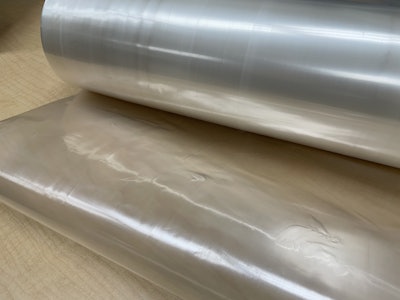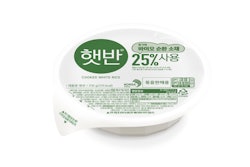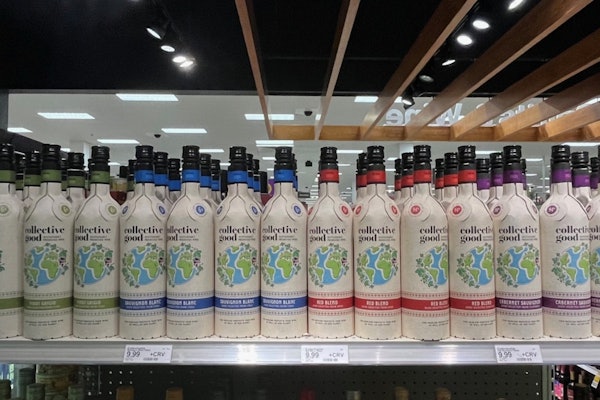
This content was written and submitted by the supplier. It has only been modified to comply with this publication’s space and style.
Cortec has launched its latest bioplastics product. Eco Works 100 is a certified industrially compostable packaging film (TÜV Austria, #TA8012509046) that contains 100% USDA certified bio-based content as a replacement for petroleum-based products. In a world where many are looking for eco-conscious alternatives to traditional plastics, Eco Works 100 diversifies the market’s portfolio of bioplastic options for those who want to go to the max on bio-based content and reduce dependency on petroleum.
Eco Works 100 tackles sustainability at both ends of the product life cycle. At the beginning, Eco Works 100 uses renewable raw materials to create a bioplastic with 100% biobased content. At the end, Eco Works 100 can decompose alongside organic waste at an industrial composting facility without ecotoxicity to the soil. This harmlessness was demonstrated by growing sunflower seeds in a mixture of 50% blank compost and 50% compost made from Eco Works 100 resin. After two weeks, the pot containing Eco Works compost experienced a nearly identical germination rate and seedling growth yield compared to the control. Results from the 25% Eco Works compost sample were also extremely good, passing the requirements for ASTM D6400.
With tightening government regulations reinforcing popular trends toward sustainability, compostable and biobased plastic options now include everything from compostable disposable cutlery to biobased mailer bags. While Cortec does its share of contributing to bioplastic portfolio diversity with a long line of specialty bioplastics—including industrially compostable stretch film, shrink wrap, corrosion inhibiting film, and organics waste collection bags—Eco Works 100 fills a place that many bioplastics do not, thanks to its high level of renewable content combined with compostability. Eco Works 100 therefore presents a key opportunity to create a range of 100% biobased bags—whether for shopping, waste disposal, or various other industrial or commercial uses—that can easily meet the requirements for certification as industrially compostable material.
























